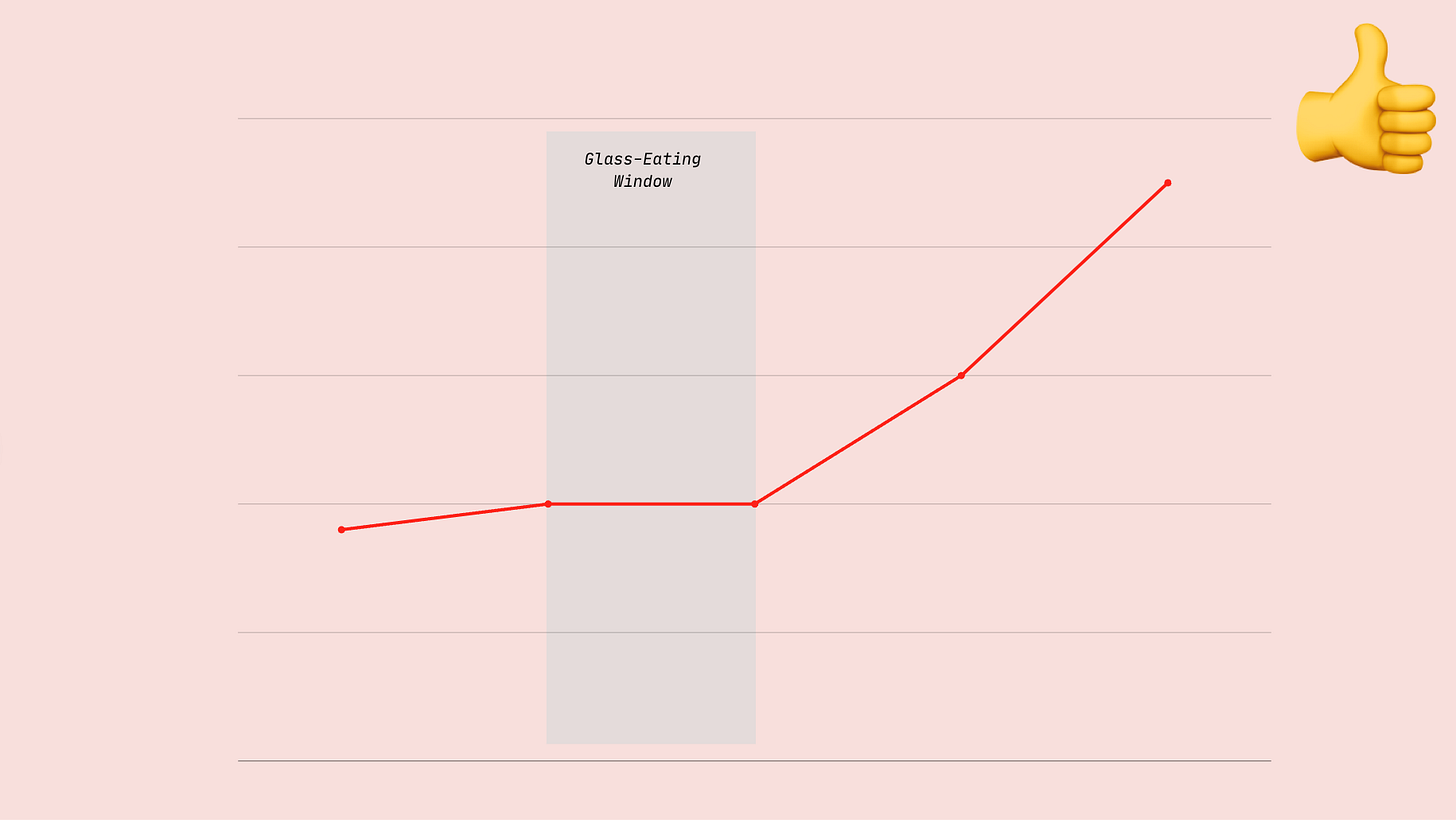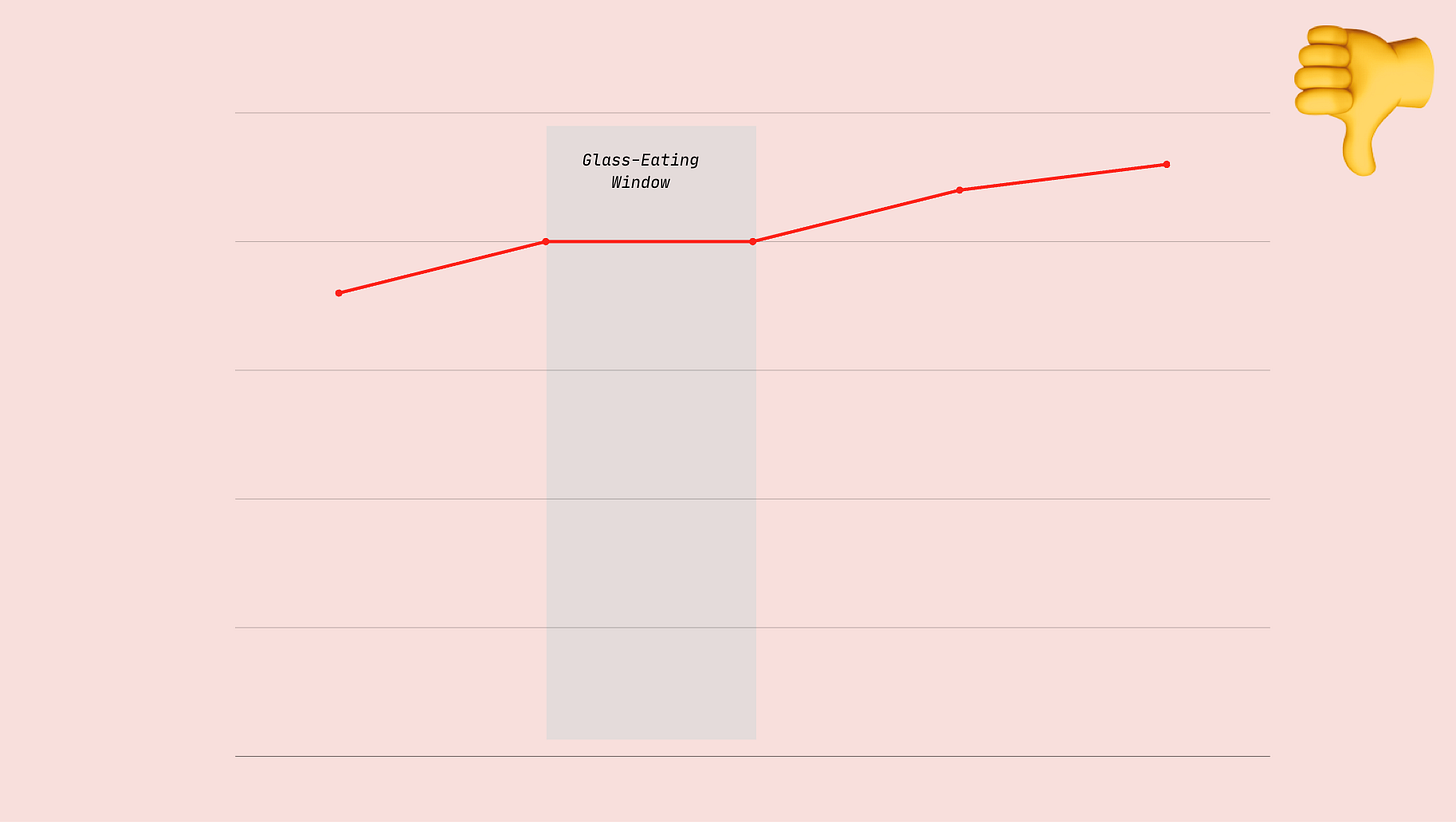Eat the Right Glass
Running a startup is like chewing glass and staring into the abyss. After a while, you stop staring, but the glass chewing never ends.
-Elon Musk
I first heard the phrase “eating glass” at Palantir. Apparently, eating glass was one of my superpowers.
This basically meant that I did hard things. The kind of things other people decided weren’t worth the pain.
I took a lot of pride in being a glass eater. It became a part of my identity, and it opened up a lot of cool opportunities along the way. I got friendly with my team’s prickliest stakeholder and forged collaboration where there’d been a wall. I became known as someone who just “got” our most idiosyncratic leaders and could help translate their ideology into various communications.
Then I went to another job. More prickly stakeholders, more idiosyncratic leaders. More glass eating, in other words. But this time it didn’t feel worth it. I spent a long time trying to figure out why. Only recently did I put my finger on it. Eating glass is only worth it when there’s exponential opportunity on the other side.
Eat this glass
It makes sense to take on additional hardship up front because the difficulty will scare off other people and you’ll get rewarded on the other side for doing the hard thing. If you have to eat glass in order to impress the CEO, but then you forever have his respect and suddenly you have latitude to initiate cool projects on your own, that’s worth it.
Or in the entrepreneurial context, you might spend years making a below-market salary and sacrificing traditional measures of career success, but the potential output after eating that glass is exponential in the form of career capital and, well, capital capital.
Don’t eat this glass
On the other hand, when the opportunity on the other side of the glass wall is merely linear, it’s just not worth it. There are plenty of linear opportunities in the world, most of which don’t involve eating glass. Don’t spend disproportionate time eating glass if there’s not a disproportionate reward for it on the other end. Don’t, for instance, work for a notoriously hard boss if impressing them won’t gain you more credibility than working for a nicer one. If your crowning achievement at the end of either the “hard boss path” or the “nice boss path” is the same, don’t pick the “hard boss path.”
Why? Because eating glass takes time and effort, which stalls your linear progress. If your reward is merely linear, you would be better off never eating the glass in the first place and just continuing up the glass-free career ladder.
This is a small insight but was a big unlock for me in deciding where to apply my efforts. Building a business, for instance, involves a lot of eating glass in the form of unpaid business development—all those coffees and Zoom calls that might not ever turn into clients. But some of the coolest, most “me-shaped” opportunities in communications are consulting assignments, and you can only unlock those exponential rewards by eating glass. (Also, it turns out I kind of like having those meetings, so it’s more like, idk, blowing glass? Whatever, there are limits to this metaphor, people!)
Hard things, in other words, are not worth it because they are hard. Hard things are worth it because they create a moat around desirable, exponential outcomes.
Additional Reading
I finally pulled this post from my dusty archives, where it’d been sitting for six-plus months, thanks to this great post from Wes Kao. It’s worth a read (as are all her posts).




